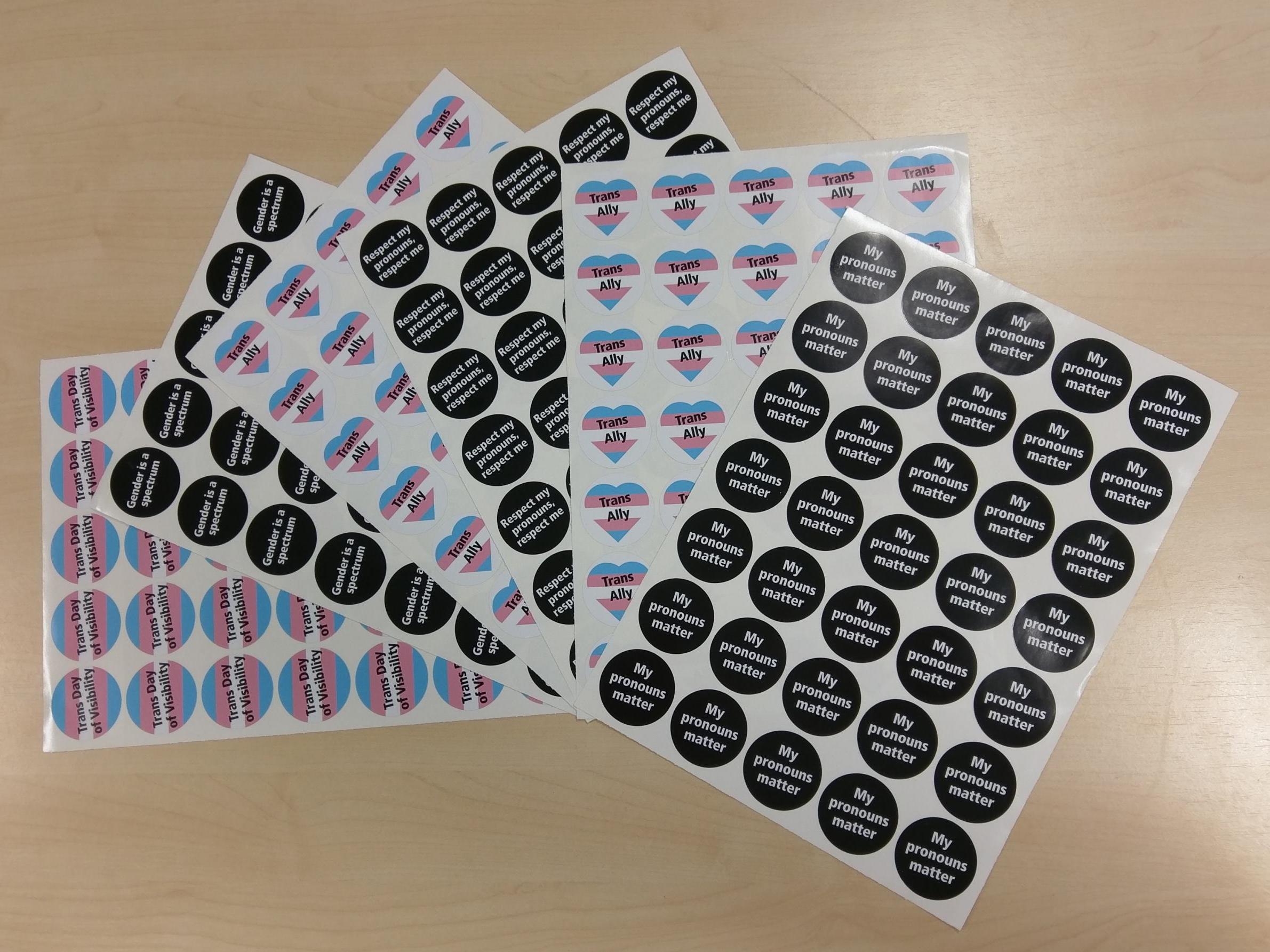School pupils in Brighton given pronoun stickers to help transgender children
'Badges and stickers help show you can’t assume someone’s gender identity'

Your support helps us to tell the story
From reproductive rights to climate change to Big Tech, The Independent is on the ground when the story is developing. Whether it's investigating the financials of Elon Musk's pro-Trump PAC or producing our latest documentary, 'The A Word', which shines a light on the American women fighting for reproductive rights, we know how important it is to parse out the facts from the messaging.
At such a critical moment in US history, we need reporters on the ground. Your donation allows us to keep sending journalists to speak to both sides of the story.
The Independent is trusted by Americans across the entire political spectrum. And unlike many other quality news outlets, we choose not to lock Americans out of our reporting and analysis with paywalls. We believe quality journalism should be available to everyone, paid for by those who can afford it.
Your support makes all the difference.Schools in Brighton are to give out pronoun stickers to pupils in a bid to support transgender children.
The stickers, which are being handed out to pupils in secondary schools and colleges, are part of Brighton and Hove City Council’s pronoun badges campaign which aims to prevent “misgendering”.
The council’s badges indicate whether people would like to be addressed as “he”, “she” or “they” – and some are left blank to allow people to fill in their own pronouns.
Now schools are giving out stickers for the first time to support the council’s campaign.
It comes after freshers at the University of Edinburgh were given pronoun badges for the first time in September to avoid wrong assumptions being made about a student’s identity.
Trans rights campaigner Sophie Cook said misgendering, the act of addressing an individual by the wrong pronoun, can be particularly harmful to transgender school pupils.
She told The Argus: “In these situations, you will have people up in arms. But quite frankly, what difference does it make to those people?
“It’s a great way of making people think about identities of the people they’re talking to.”
Wearing the stickers, which include slogans such as “respect my pronouns, respect me”, “gender is a spectrum” and “trans ally”, in secondary schools is voluntary, the council said.
A city council spokesperson said: “The badges and stickers help raise awareness that you can’t assume someone’s gender identity and the pronouns they use. We know from a range of evidence that gender is more complicated than is traditionally recognised.
“We all define our own gender and we should respect other people’s identities and rights.”
They added: “We’re proud of being a diverse city, and the council is committed to equality and inclusion for all people, including our trans and non-binary residents. Our equality and inclusion strategy rightly supports those who are experiencing greatest disadvantage.”
Last year, Brighton and Hove City Council distributed badges to Brighton University for students and staff to display their pronouns.
It came after Sussex University Student Union advised students and staff to state their pronouns at the beginning of every meeting.
A number of student leaders and academics at universities across the country now sign off their emails with their chosen pronouns, alongside their names, titles and telephone numbers.
Pronoun badges and stickers are becoming increasingly common at National Union of Students (NUS) conferences and LGBT+ events.
Join our commenting forum
Join thought-provoking conversations, follow other Independent readers and see their replies
Comments